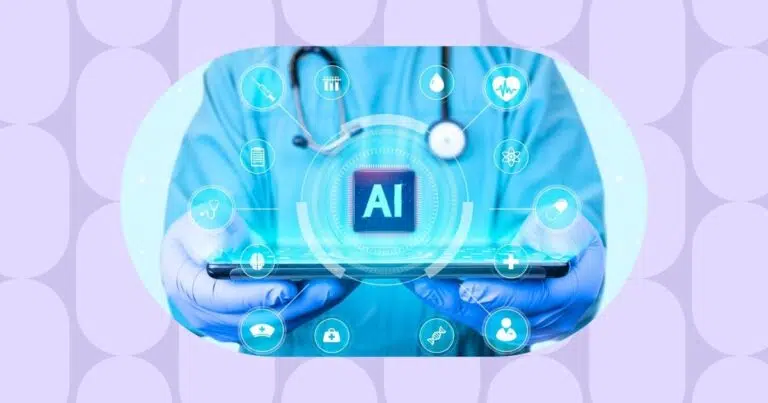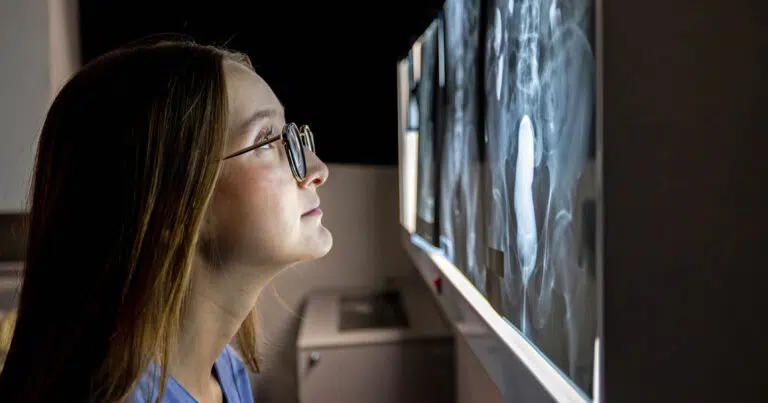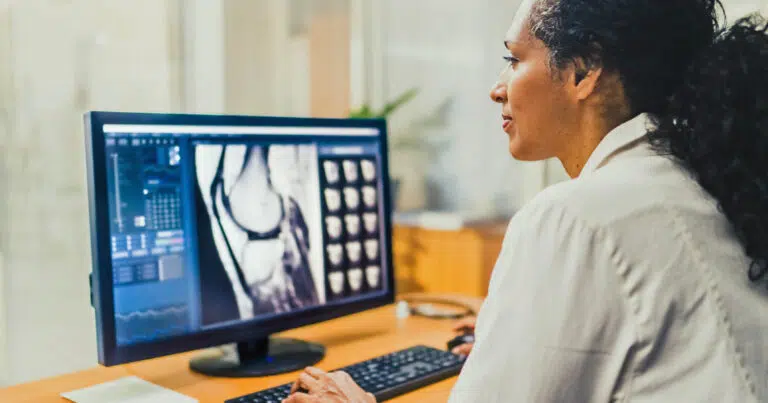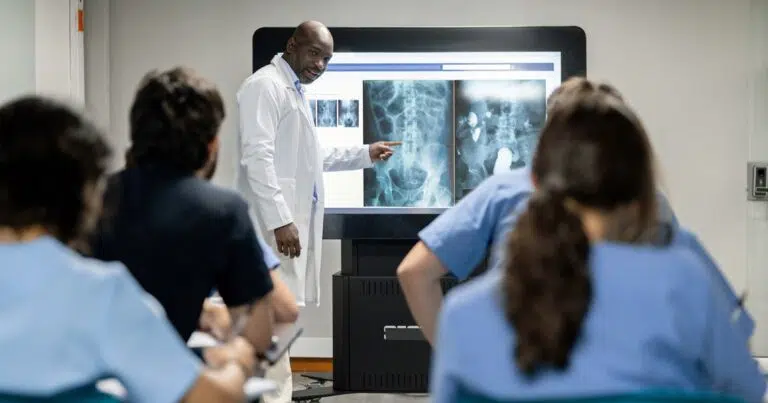Radiology Technician Career Guide
Looking for a different career guide?
Overview
Radiology technicians play a crucial role in the field of healthcare by operating medical imaging equipment to help diagnose and treat patients. These professionals are skilled in capturing images of internal body structures, aiding physicians in making accurate diagnoses and treatment plans. As a radiology technician, you'll be responsible for performing various essential job functions within this specialty.
Radiology
Education
To become a radiology technician, you'll need an associate's degree in radiologic technology. These programs typically take around two years to complete and are offered by community colleges and vocational schools. Coursework covers anatomy, patient care, radiation protection and image evaluation. Some states require radiology technicians to be licensed or certified. After completing your education, you may need to pass
Qualifications

Skills
Success as a radiology technician demands a blend of technical, interpersonal and analytical skills. Proficiency in operating imaging equipment, ensuring patient comfort and maintaining radiation safety protocols is essential. Communication skills are crucial for explaining procedures to patients and collaborating with healthcare teams. Attention to detail and the ability to analyze images accurately aid in proper diagnosis and treatment planning.
Responsibilities
Radiology technicians are responsible for preparing patients for imaging procedures, positioning them correctly, adjusting equipment settings and ensuring image quality. They maintain equipment functionality, adhere to safety guidelines and provide compassionate patient care. Radiology technicians work closely with radiologists and other medical professionals to deliver accurate and timely results.
Salary Insights
The average salary for a Radiology Technician is $2,238.92 per week.
Last updated on December 20, 2025. Based on active jobs on Vivian.com.
Pros & Cons
Radiology technicians play a crucial role in healthcare by directly contributing to patient care and diagnosis. Their work has a positive impact on healthcare outcomes, which can be quite rewarding. Additionally, due to advancements in medical imaging technology and an aging population, the demand for radiology technicians is projected to grow. This means that there are plenty of job opportunities
Some of the content on this page was enhanced using artificial intelligence.
Join over 1 million healthcare workers that are getting a head start with Vivian.
Join Vivian





